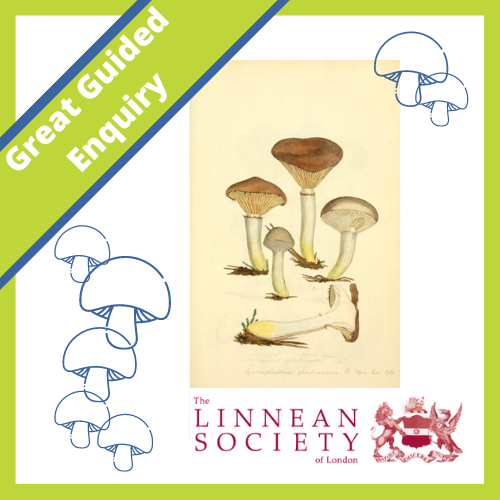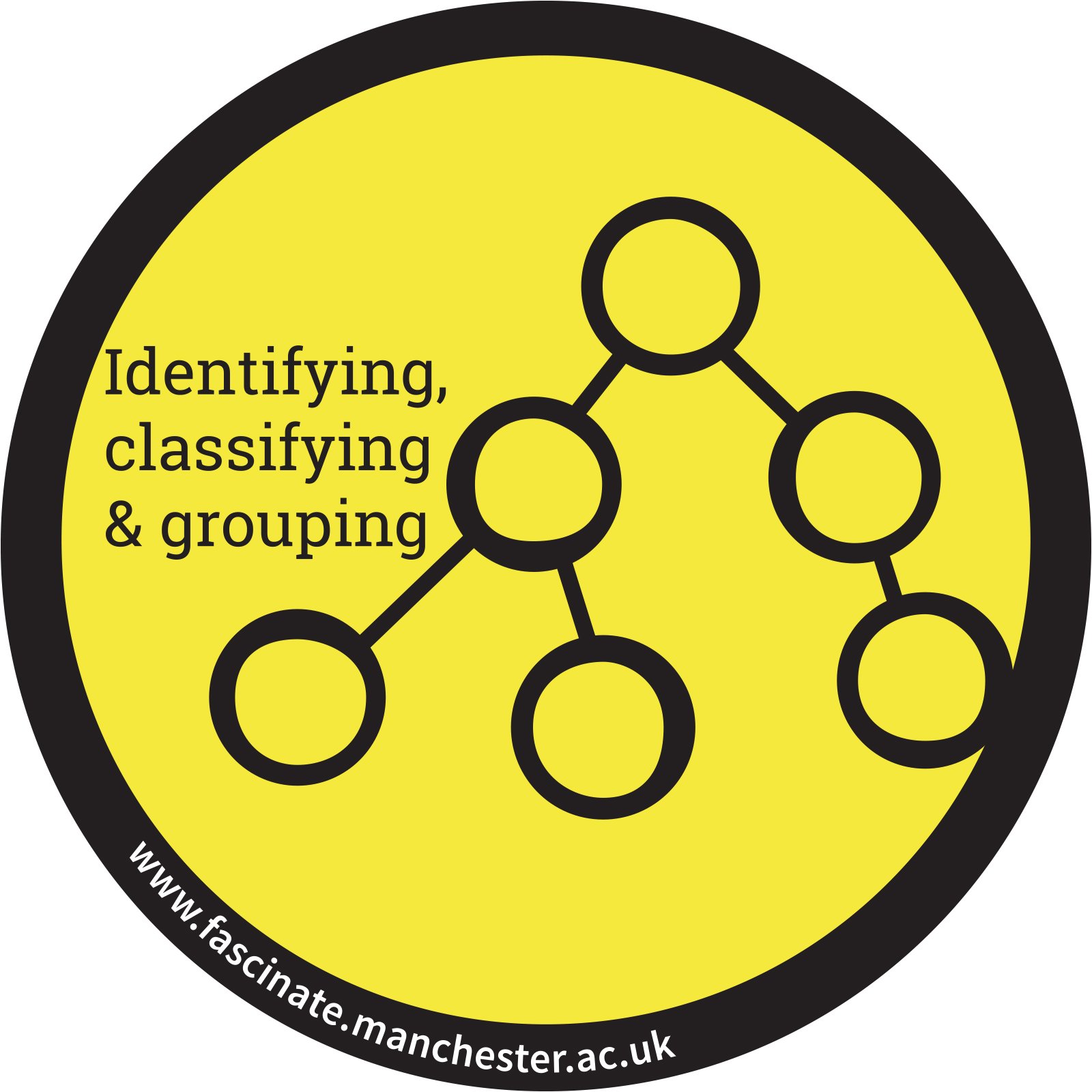Great Gather & Group
Three guided enquiries supporting teachers to inspire young people to ask, investigate and share scientific questions. Designed as part to the 2023 theme, Science Around Us, the Great Gather and Group, has been developed in partnership with The Linnean Society, the world's oldest natural history society, situated in the heart of London.
Each enquiry provides teachers notes, teaching slides, a supporting video and links to GSSfS resources guiding pupils to work scientifically.
Age: 5-7, 7-11, 11-14 years
Curriculum topics: living things and their habitats, plants
Mycology is the study of fungi, a diverse group of organisms that include mushrooms, moulds, yeasts, and lichens.
Are mushrooms plants?
Working scientifically: carrying out a simple comparative test
This guided enquiry will engage your pupils in observations to investigate a variety of plants. They are introduced to mushrooms and address the common misconception that mushrooms are plants. They ask questions about how plants and mushrooms are similar and different, developing simple understandings of fungi and deepening their understanding of what a plant is and why.
Great Gather and Group enquiry video 1. Duration: 1 min
Great Gather and Group enquiry video 2. Duration: 5 mins
Can we identify and classify living things around us?
Working scientifically: planning and setting up comparative and fair tests
This guided enquiry will engage your pupils in observations to apply their knowledge of keys to identify and classify living things. They learn about the work of Carl Linnaeus and are challenged to consider whether a mushrooms can be classified as a plant. Pupils are inspired to get outdoors and observe living things, asking questions about how mushrooms and different types of fungus are similar and different. They work scientifically by classifying and justifying their reasoning.
Great Gather and Group enquiry video 1. Duration: 1 min
Great Gather and Group enquiry video 2. Duration: 5 mins
Is there much room for mushrooms in our future society?
Working scientifically: planning and setting up comparative and fair tests
This guided enquiry will engage your pupils in undertaking an observational enquiry to find out about different types of fungus. They will ask, investigate and share scientific questions related to how mushrooms differ to other types of fungus and plant species. They practically explore the growth and management of fungus using yeasts and agar plates, considering the implication on fungal growth in a sustainable society.
Great Gather and Group enquiry video for 11-14 year-olds. How mushrooms grow. Duration: 1 min
Great Gather and Group enquiry video for 11-14 year-olds. Uses of mushrooms. Duration: 1 min
About Carl Linnaeus
Born in 1807, Carl was a Swedish botanist, zoologist, taxonomist, and physician. He was educated at Uppsala University and journeyed through Sweden to find and classify plants and animals. He was also a great poet, yet died in 1777 and is buried in Uppsala Cathedral.
Find out more about Carl in this video and on the Linnean Society website here.
Learn about how Carl Linnaeus organised the natural world. Duration: 3 mins
Extend with Explorify…
Explorify have provided a range of activities linked to the Great Gather & Group to inspire pupils to ask and investigate their own scientific questions, whilst encouraging and developing good speaking and listening skills. PLUS find more activities from Explorify, for your age range, in Great Science Ideas.
Context
These three guided enquiries have been inspired by The Linnean Society of London. Founded in 1788 by botanist Sir James Edward Smith. The society takes its name from the Swedish naturalist Carl Linnaeus, the 'father of taxonomy', who systematised biological classification through his binomial nomenclature.
Find out more about Great Guided Enquireis and how they can enhance your GSSfS at the blog here
Plus find the full set of Great Guided Enquiries for 2023, and additional enquiry resources at these links:


















